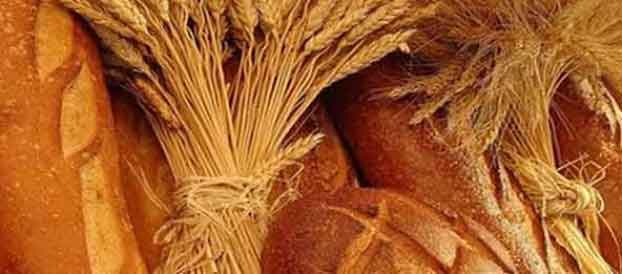The Wine of the Spirit
John 2: 1-11
Water into Wine was Jesus’ first ‘miraculous sign’ (11). But what was it a sign of? Signs always point to something. We have signs pointing people to our church. If a sign does not get people to church it has failed. So it’s important to know what a sign is pointing to; especially a miraculous one. John refers to a number of Jesus’ miracles as ‘signs’, and towards the end of his gospel he says, “These (signs) are written that you may believe that Jesus is the Christ, the Son of God” (Jn 20.31). Showing that Jesus is the unique Son was clearly John’s main objective. But we would be mistaken to think that being able to do miracles makes Jesus the Son of God. Moses and Elijah did miracles but neither was declared to be the Son of God. No, when John talks of a sign he wants us to see that there is a message in the kind of miracle that Jesus did; a message that reveals who Jesus is.
When Jesus cleared the temple of marketers (2. 13-22) the Jews demanded, “What miraculous sign can you show us to prove your authority to do all this?” Jesus answered them, “Destroy this temple, and I will raise it again in three days.” But John explains that, “The temple he had spoken of was his body.” Jesus intended to show the Jews that he had authority over the temple by transforming the sacred building into a sacred people – the Church. The building would die when he died and the people would arise when he arose. The transformation of God’s house through his very body was a miracle that revealed his uniqueness. It was a sign indeed. So how is turning water into wine a sign that Jesus is unique?
The setting is a wedding in Cana of Galilee, just north of Jesus’ home town, Nazareth. Jesus, his mother, and his disciples are invited. They obviously knew the couple very well because Mary takes it upon herself to sort out the wine issue and even tells the servants of the house what to do.
Running out of wine at a wedding was highly embarrassing. Weddings usually lasted a few days – seven being the sacred number. People travelled from far to attend. If the wine ran out what would people do; drink water? You can’t, the party would die and people would leave. On top of this, the groom provided the wine, and he was out to impress the bride and her family on this special occasion.
Mary informs Jesus of the problem. But he says, “Dear woman,why do you involve me? My time has not yet come.” His statement reveals a lot. Both of them knew ‘his time’ was coming. Since giving birth as a virgin she knew Jesus was special, and like a good mother she longed for the day when God’s promise would take effect. But Jesus was waiting for the voice of the Father. He knew he was powerless without him. Mary seems to concede to Jesus’ wishes telling the servants to “Do whatever he tells you” should he decide to act.
Meanwhile the kitchen is panicking. Orders are coming in for more wine and they don’t know what to do. If the groom finds out he will assume his wedding is over.
Right at the critical moment Jesus acts. Did the Father say, “It’s time”? It seems so, because John describes this as Jesus’ first miraculous sign; it was where his ministry began.
Six stone jars containing ceremonial washing water stood nearby. These were for washing hands and feet. For Jews, sharing a meal was all about fellowship; and fellowship had to be clean; you had to be clean, your guests had to be clean, and the food had to be clean. So you had a ceremonial wash before starting. Gentiles, unrepentant sinners, and sick people were considered unclean company.
Jesus told the servants to fill the jars, and they filled them to the brim. Then he asked them to take some of the contents to the master of the banquet (probably a sort of MC, like a Best Man). The MC tastes the water that has been turned into wine, and he is surprised, so he calls the groom aside. By this time the groom has probably heard that the wine is out and the wedding is in trouble. But before he could say anything the MC congratulates him saying, “Everyone brings out the choice wine first and then the cheaper wine after the guests have had too much to drink; but you have saved the best till now.” I can imagine the quick glances that must have shot around the room at that point, first from the groom to the servants, then from the servants to Jesus, and then from Jesus to Mary. Jesus’ time had certainly come, and how!
Now, it’s important that we read this account through first century Middle Eastern Jewish lenses. If we try to see it through modern African Evangelical lenses we will be in trouble. African Evangelicals like some other Evangelicals are brought up believing that drinking alcohol is a negative thing. So it’s a bit confusing to read that Jesus turned some 600 litres of water into wine. But we have to understand that first century Middle Eastern Jews saw wine as a positive thing. They saw wine as a blessing from God (Is 25.6, Ps 104.15). When they had a bumper grape harvest they praised God for it. One of the most joyous times in ancient Israel was when the freshly picked grapes were thrown into the winepress and everyone jumped in barefoot to trample them so the juice could be collected and wine could be made (Is 16.10). It was a time to sing and dance (Judges 21.20-21) and they probably sang Psalms while doing it. For them wine was a symbol of the good times, they even used it to rejoice in God at the temple (Dt 14.26). Oh sure, Jews knew drunkenness was a sin, but they grew up with wine on the kitchen table, so they were cultured in moderate drinking. And this included their rabbi’s, priests and prophets.
If we forget this cultural context and project a negative view of wine on it, we will start to twist the scriptures saying “Oh he must have turned the water into grape juice, or extremely low alcohol wine.” But Jesus turned it into the best wine, and this was usually strong in both taste and alcohol. It may be strange to us, but it was not strange to them.
I mention this cultural aspect because we need to appreciate that Jesus turned the water into something vibrant and powerful if we are going to see the sign that John intends for us to see. So, now that we understand this, what is the sign?
Well John is very careful to describe the stone jars as “The kind used by the Jews for ceremonial washing.” He did not have to mention that but he did, and this suggests that he wanted us to see that the miracle was not just about providing for a domestic need. These ceremonial jars represented the Law, the Old Covenant and its rituals. Jesus turned the ordinary water of the Old Covenant into the vibrant and powerful wine of the New Covenant. He turned boring ritual into the exciting adventure of a Spirit filled life. And we see the beginning of this on the Day of Pentecost when God’s Spiritual Wine was poured out on all believers! It was vibrant, exciting, and powerful!
But some Evangelicals may still ask, ‘Did God have to use wine as a symbol, why didn’t he just use grape juice? There is a good reason why it had to be wine, let me explain.
Some time ago I was using Google search to find information on the internet. I typed in ‘grapes’ and the search engine spewed out lists of websites that had ‘grapes’ in their titles. But one particular title pricked my curiosity. It read ‘Grapes on Fire,’ and I immediately thought ‘Hey, that must be a Christian site.’ The Bible describes Israel as God’s ‘vineyard’ (Isaiah 27:2). Today Christians consider the church to be God’s vineyard. So I naturally thought ‘Grapes on Fire’ would describe believers who have been set on fire by the Holy Spirit. But when I clicked on the link I saw that the website was all about wine. ‘Grapes on Fire’ was their description of wine. And if you think about it, it’s quite a good description. Wine is grape juice that has been set on fire. It has a power and life of its own. If you drink wine it feels like there is fire inside you. This fire lifts you out of depression, removes your fears and makes you bold like a lion.
Now don’t think I’m being worldly here, the Bible acknowledges these things. It says we should give wine to those who are in anguish (Proverbs 31:6). Why; because wine gladdens the heart (Psalms 104:15). But of course, as we all know, there is a down side. If we drink too much wine it can enslave us and cause us to behave in bad ways. But the real Wine of God is the Holy Spirit. He brings lasting joy and you can never have too much of him. In fact the Bible says ‘Do not get drunk on wine … instead be filled with the Spirit’ (Ephesians 5:18). The words ‘drunk’ and ‘filled’ do not imply having a little, but a lot. And the writer is saying we should not get inundated with wine, but inundated with God’s Spirit. The Holy Spirit has been given so we can be overcome the trials of life.
The other day I bumped into a non- Christian friend of mine in a shopping mall. His family were sitting upstairs in a fast food section having lunch, but he had sneaked out for a quick drink at the bar down stairs without them knowing. He obviously felt the need for a little lift. But this got me thinking. Unbelievers know what to do when they are down. They go for a quick drink. Yet they don’t have the Wine of God, they have a poor substitute. But very often we who have access to the Wine of God don’t take a drink when we need to. How often have you come across believers who have lost their joy and enthusiasm? I think we can all say ‘too often!’ And all they need to do is take a drink; a drink of the Holy Spirit.
I remember doing this in my former occupation as a designer. If I was feeling down at the office I would nip into the gent’s toilet and worship God for a few minutes. As I worshipped, God’s Spirit would come on me and I would be filled with his joy once more. It was a quick drink.
Of course it’s even better if we drink from God every morning before going to work, then we have what we need to carry us right through the day. This is the affect of the Holy Spirit, and we need his joy and peace if we are going to be a light in this world.
Jesus turned the boring ritual water of the Old Covenant into the vibrant, powerful wine of the New Covenant. Ritual water is for external application, but wine is for internal transformation. It has the power to change us on the inside. This is why wine is a symbol of the Holy Spirit. The Wine of the Spirit is powerful, it is awesome! When last did you stop for a drink?







